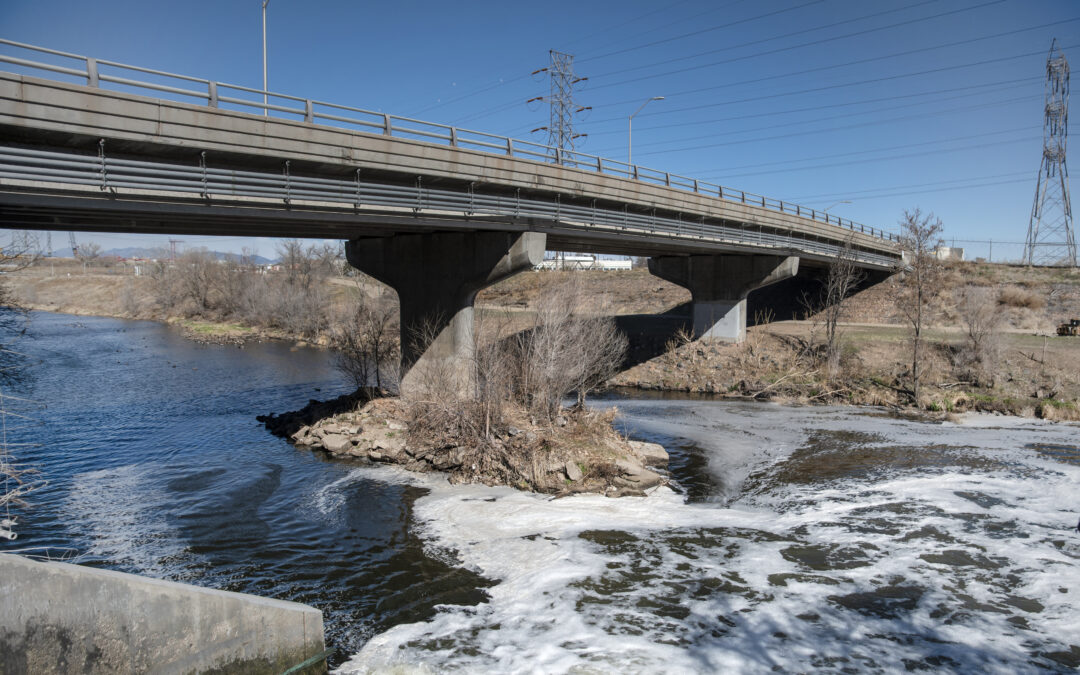Colorado lags far behind neighboring states when it comes to keeping special permits — those that are critical to stopping pollutants from entering streams — current, a new report says.
Six other states surveyed have fairly few wastewater treatment permits that have lapsed, with Arizona and Oregon, for instance, showing permit backlogs of 10%, while Colorado has surged in recent years to a backlog in which at times 70% of permits have lapsed.
The analysis was commissioned last year to help the Colorado Department of Public Health and Environment (CDPHE) and state lawmakers understand why the situation has deteriorated and how it can be fixed.
The permits are required under the federal Clean Water Act and govern how municipal plants that treat wastewater and release it back into rivers and streams must operate. They are designed to protect Colorado’s waterways from contaminants contained in wastewater. The state is required to enforce the federal law.
Colorado lawmakers approved $6 million in new funding in 2023 to help the CDPHE’s Water Quality Control Division hire more staff so permits can be processed faster and more efficiently, but the backlog remains and affects major treatment facilities, including Metro Water Recovery, which serves the Denver metro area and which is the largest treatment facility in the state.
The backlog has left dozens of communities without a current wastewater discharge permit. They can still discharge under a special administrative rule, but the backlog means the communities aren’t complying with the most current wastewater treatment standards and they are prohibited from moving ahead with planning and design of new treatment systems that take years to permit and complete.
Colorado’s problems stem from a system that doesn’t prioritize work properly, lacks clear information about processing status, and gets bogged down in lengthy internal and public reviews, the report said.
It also cited heavy workloads as contributing to the problems.
Other states have more success because they have better internal tracking and reporting systems, prioritize work more efficiently, and utilize newer technologies that allow the complex permitting processes to be better integrated, the report said.
The Colorado Department of Public Health and Environment’s Water Quality Control Division has been hiring and training new staff to reduce the backlog, said Nicole Rowan, the division’s director.
“We know this is an area we need to improve,” she said.
Colorado may also be hampered by a lack of resources and its commitment to strict, detailed enforcement, said Meg Parish, a water quality expert and senior attorney for the Washington, D.C.-based Environmental Integrity Project.
Oregon, she said, has invested heavily in its permitting systems, while other states lack the robust environmental laws and regulations that Colorado embraces, which make permitting more complex.
“I would love to see Colorado invest in the kinds of resources in permitting that Oregon has,” she said.
This spring, lawmakers became so concerned that they passed a new law requiring tighter deadlines and more scrutiny of the division’s work. The new report is part of the effort to clean up and streamline the troubled permitting system.
Key to the effort is working on complex engineering and water quality analyses that govern how treatment plants can operate while meeting current and future water quality rules, such as those governing PFAS contamination.
Concern among cities whose treatment facilities don’t have current permits remains high, said Dan DeLaughter, chair of the Colorado Wastewater Utility Council.
The numbers of current permits, he said, “are still incredibly low. I hope they can begin to turn that around. But I haven’t seen a lot of progress in the last couple of years.”
The problem leaves utilities in regulatory limbo, where simple actions, like using more modern treatment compounds, can’t be taken because technically the utilities aren’t in compliance with current rules, a status that prevents them from modifying or changing their approach to treatment, even though it might protect streams better and save taxpayers money, DeLaughter said.
“I’m encouraged they are looking at the issues,” he said. “But I think there is a lot more work to be done.”



 Print
Print